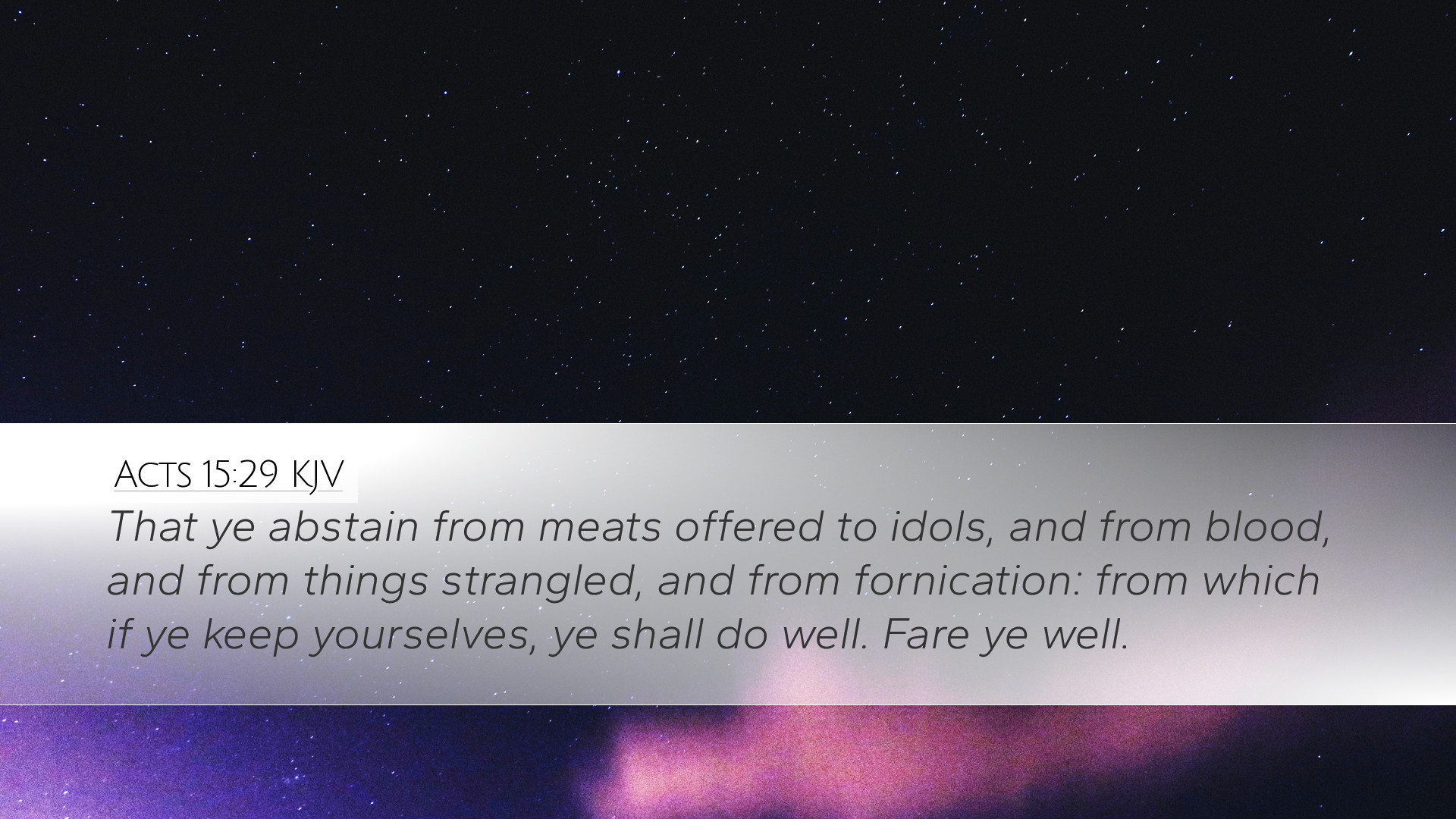Commentary on Acts 15:29
Verse Reference: Acts 15:29
This verse reads: “That you abstain from meats offered to idols, and from blood, and from things strangled, and from fornication: from which if ye keep yourselves, ye shall do well. Fare ye well.”
Contextual Overview
The Council of Jerusalem plays a crucial role in the early church, addressing the tension between Jewish traditions and the newfound faith among Gentiles. This verse outlines the stipulations laid upon Gentile believers as a means of maintaining unity within the church.
Historical Insights
Matthew Henry observes that the early Christians faced considerable controversy regarding the customs and laws of Judaism and how they should be observed or set aside by the Gentile converts. The decision made by the apostles reflects a balance between adherence to fundamental moral principles and the necessity of not burdening new believers with the full yoke of the Law.
Spiritual Significance
Albert Barnes emphasizes the importance of these directives in promoting two primary goals: unity among believers and the moral purity of the church. By abstaining from food that had been offered to idols, believers could avoid syncretism—a blending of faiths that could dilute the singularity of the gospel message. The emphasis on blood and strangled animals ties back to the dietary laws delineated in the Old Testament, underlining a continuity of God's moral expectations across both testaments.
Moral Imperatives
Adam Clarke discusses the moral implications of fornication, indicating it as a significant issue in the moral landscape of the pagan societies into which Christianity was expanding. By explicitly addressing fornication, the apostles were not only preserving the sanctity of marriage but also safeguarding the integrity of the community. This directive goes beyond mere compliance with Jewish dietary laws; it speaks to the heart of personal holiness and community ethics.
Exegetical Analysis
The verse itself displays a concise yet profound exhortation to "keep yourselves." This phrase encourages an active participation in one's own spiritual journey, implying that believers are to actively pursue holiness. The words "ye shall do well" act as a reassurance of the blessings associated with obedience to these commands—a theme prevalent throughout scripture.
Application for the Church Today
From a contemporary standpoint, Acts 15:29 can be seen as a call for the modern church to discern what practices may distract from the core message of the gospel. Pastors, theologians, and students of the Bible are urged to reflect on what modern-day "idols" may exist and how to counteract them. This could involve examining cultural practices that may lead younger generations away from faith or compromise the integrity of the church community.
Conclusion
Acts 15:29 serves as a rich passage filled with guiding principles for both personal conduct and corporate identity within the body of Christ. It signals a commitment to purity, unity, and proactive engagement in the Christian life. The wisdom from public domain commentaries underlines the significance of adhering to biblical standards while navigating cultural complexities, fostering an environment where faith can thrive.
Further Reflections
- Unity in Diversity: How can the church today maintain unity while embracing diverse backgrounds and practices?
- Ethical Standards: What modern ethical issues mirror the concerns addressed in this verse?
- Cultural Engagement: In what ways can believers engage with culture without compromising their faith?


